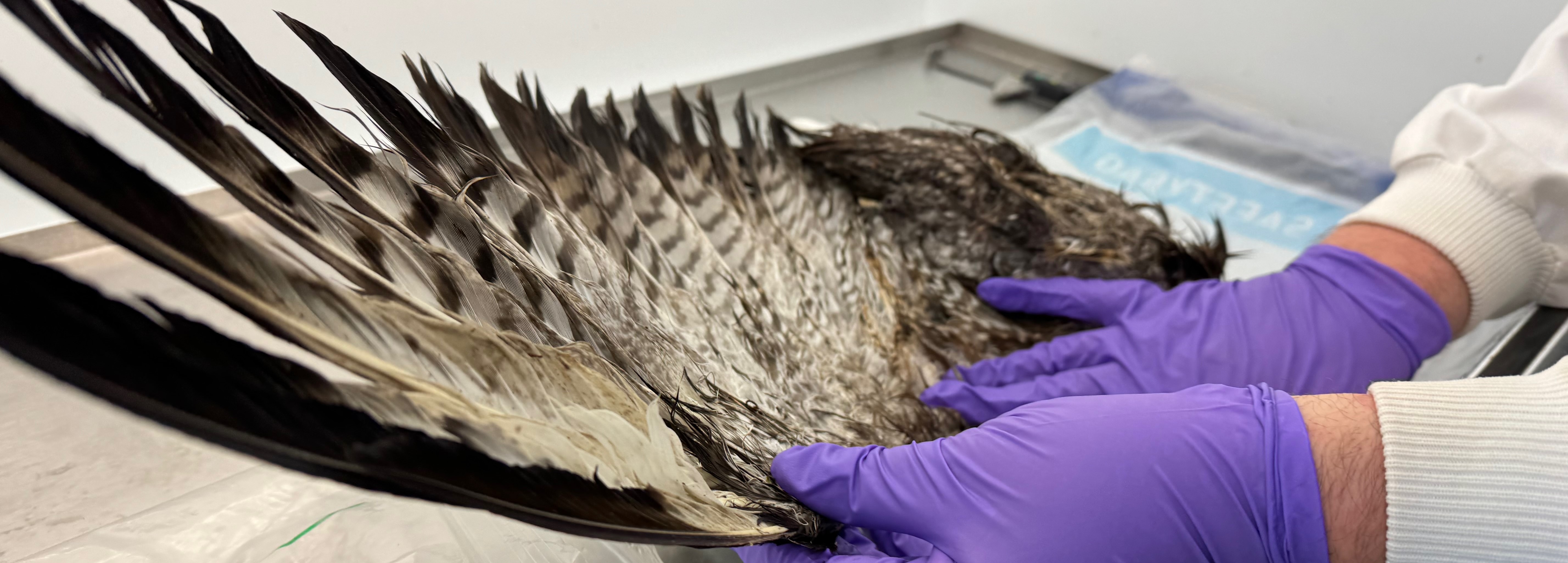The latest episode of our Counting the Earth podcast is here! Listen now.
In this instalment, Alice and Sue brave the walk-in freezers at the UK Centre for Ecology & Hydrology (UKCEH) in Lancaster, where the temperatures get down to -18°C, to explore the story behind PFAS – per- and polyfluoroalkyl substances – also known as “forever chemicals”. These persistent chemicals are woven into our everyday lives, found in non-stick cookware, waterproof clothing, cosmetics, food packaging, and firefighting foam, for example.
But there’s a chilling twist: PFAS can remain in the environment for over 1,000 years, quietly building up in the food chain, and in the tissue in our bodies. As apex predators, birds of prey – like buzzards, barn owls, sparrowhawks, and kestrels – ingest these and other chemicals. For this reason, UKCEH dead predatory birds donated by the public are used by scientists to build up a picture of pollutants in the environment.
Listen now to learn how each bird tells a story – and to find out what we can do about forever chemicals.
Listener discretion: this episode includes a detailed description of an autopsy performed on a dead bird.
Want to help?
UKCEH is a registered charity. Discover more about the Predatory Bird Monitoring Scheme and support its vital work through the JustGiving page.
UKCEH scientists are collaborating with EU partners on the following projects relating to the development of new chemicals that are safe and sustainable in design.
Catch up on previous Counting the Earth episodes and never miss an update—subscribe on Spotify, Apple Podcasts, Google, or wherever you listen. 🌍 Don’t forget to leave a review!
Produced by Rachael Buchanan
A Boffin Media production for the UK Centre for Ecology & Hydrology
